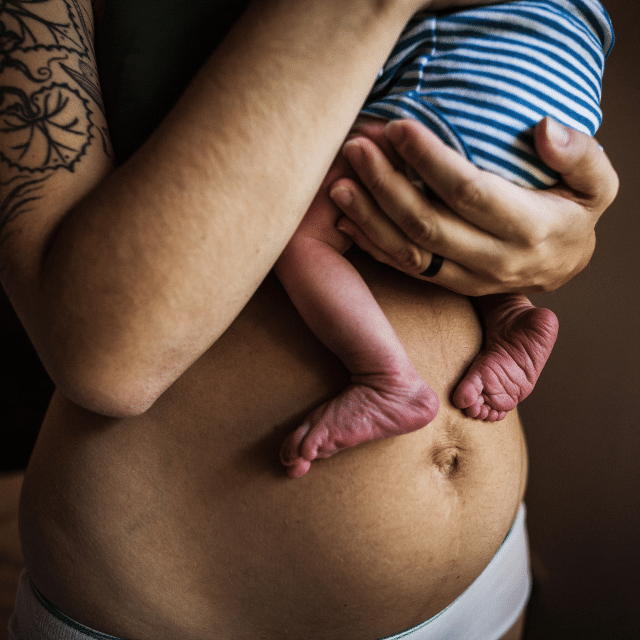Schwangerschaft,
Geburt und Hypnose
Ich begleite Frauen vor, während und nach ihrer Geburt.
Für freudvolle Geburtserlebnisse.
Schwangerschaft,
Geburt und Hypnose
Ich begleite Frauen vor, während und nach ihrer Geburt.
Für freudvolle Geburtserlebnisse.
Mein Angebot
Seit über 13 Jahren betreue ich Frauen und Paare rund um ihre Schwangerschaft(en). Mehrfach pro Monat stehe ich im Gebärsaal und unterstütze Frauen während dieses so natürlichen und eigentlich total normalen Prozesses.
Ich setze mich ein für mehr positive Geburtserlebnisse; dafür, dass diese möglich sind, wenn sich Frauen gut aufgehoben, abgeholt und gehört fühlen.

Geburtsvorbereitung mit Hypnobirthing
In den Hypnobirthing-Kursen vermittle ich dir Techniken und Kenntnisse, die dir helfen, deine Geburt emotional entspannt und voller Vertrauen zu erleben.

Doula Geburtsbegleitung
Als Doula ist es meine Aufgabe, Gebärende während der gesamten Geburt emotional zu unterstützen, um ihnen ein möglichst positives Geburtserlebnis zu gewähren.

Geburtsverarbeitung
Gemeinsam arbeiten wir Erlebtes auf: Belastende Schlüsselsituationen und damit verbundene seelische Narben bewusst machen, verarbeiten und so integrieren, dass sie emotional nicht mehr belasten.
über 13 Jahre
Erfahrung
über 70 Geburten
begleitet
über 5000
Coaching-Stunden
selbst vier Kinder geboren
Begeisterte Stimmen von Müttern
Ganz herzlichen Dank für den tollen Geburtsvorbereitungskurs. Ich habe mich sehr wohl gefühlt und sehr gut vorbereitet. Deine Offenheit gegenüber allem fand ich super!! Auch deine ruhige Art und der ganzheitliche Ansatz hat mich inspiriert. Ich darf auf eine wunderbare und positive Geburt zurückschauen.
Danke für deine Begleitung über die letzten 6 Monate. Die Verarbeitung meiner ersten Geburt und die Vorbereitung auf meine zweite Geburt mit Hypnobirthing und Geburtshypnose Techniken. Es hat mir Sicherheit gegeben dich während meiner Geburt als Doula an meiner Seite zu wissen. Ich schaue auf eine positive VBAC zurück.
Mir hat es so gut getan, dass du dich immer so um mich gekümmert hast, mir zugehört, für mich da warst und alle meine Anliegen ernst genommen hast. Ich bin mir das nicht gewohnt. Es hat mich bestärkt in meinem Vorhaben. Danke für alles. Ich bin sehr froh.
Hey, ich bin Awital!
Ich bin Expertin für mentale Geburtsvorbereitung, Geburtshypnose und Mutmacherin für freudvolle Geburtserlebnisse.
Ich möchte, dass du …
- mehr Freude und Leichtigkeit während deiner Schwangerschaft erleben kannst.
- mehr Vertrauen in deine Schwangerschaft und anstehende Geburt fassen kannst.
- deine für dich stimmige Geburt aus eigener Kraft erleben darfst.
- ganz du selbst sein kannst und die Form der Geburt erleben darfst, die du dir wünschst.
Ich begleite als Doula monatlich zwei bis drei Geburten, führe die MyGentleBorn-Academy, welche Fachpersonal auf dem Gebiet der mentalen Geburtsvorbereitung und der Geburtshypnose ausbildet und leite die BäderPraxis21 im Bäderquartier in Baden.

Kennst du eines dieser Gefühle?
«Ich habe Angst vor der Geburt und benötige Strategien, wie ich gelassener werden kann.»
«Ich möchte die Geburt nicht alleine durchstehen müssen.»
«Meinen Geburt verlief nicht, wie ich mir das vorgestellt habe. Kannst du mir helfen damit klarzukommen?
Dann lass mich dich unterstützen.
Damit auch du positive Geburtserlebnisse erfahren darfst.
1. Termin vereinbaren
Vereinbare ein kostenloses und unverbindliches Kennenlerngespräch mit mir.
2. Unverbindliches Kennenlernen
Lerne mich in einem ersten Gespräch kenen und kläre deine Fragen. Gerne erkläre ich dir wie ich arbeite.
3. Entscheidung für Zusammenarbeit
Entscheide dich erst dann, ob du für eine vertraunensvolle Geburt mit mir zusammenarbeiten willst.


